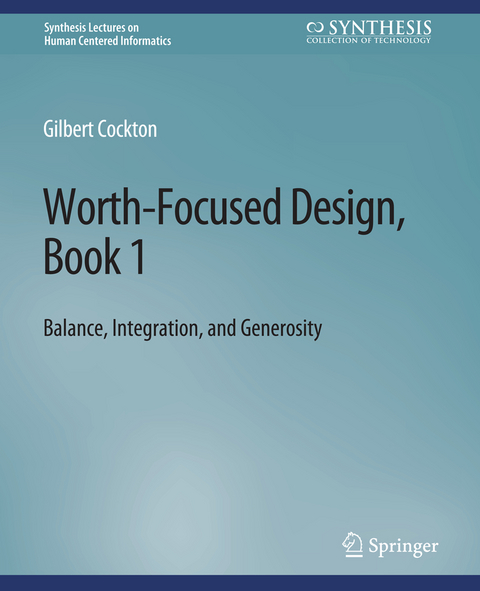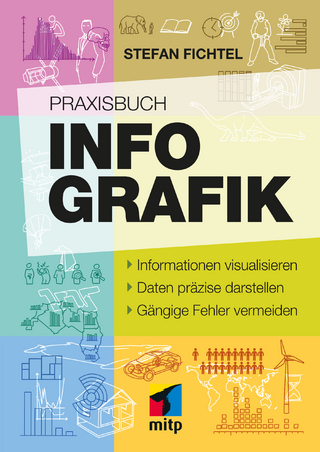
Worth-Focused Design, Book 1
Springer International Publishing (Verlag)
978-3-031-01101-6 (ISBN)
Design now has many meanings. For some, it is the creation of value. For others, it is the conception and creation of artefacts. For still others it is fitting things to people. These differences reflect disciplinary values that both overlap and diverge. All involve artefacts: we always design things. Each definition considers people and purpose in some way. Each handles evaluation differently, measuring against aesthetics, craft standards, specifications, sales, usage experiences, or usage outcomes. There are both merits and risks in these differences, without an appropriate balance. Poor balance can result from professions claiming the centre of design for their discipline, marginalising others. Process can also cause imbalance when allocating resources to scheduled stages. Balance is promoted by replacing power centres with power sharing, and divisive processes with integrative progressions. A focus on worth guides design towards worthwhile experiences and outcomes that generously exceed expectations.
This book places a worth focus (Wo-Fo) in the context of design progressions that are Balanced, Integrated, and Generous (BIG). BIG and Wo-Fo are symbiotic. Worth provides a focus for generosity. Effective Wo-Fo needs BIG practices.
Gilbert Cockton is a part-time Professorial Research Fellow at the University of Sunderland. He retired as Professor of Design Theory at Northumbria University in 2019, remaining affiliated with NORTH Lab as an Emeritus Professor. His career has balanced teaching, research, and working for and within businesses, government, and the third sector. He has worked in academic computing and design departments since 1984. From 2004, his research has focused on bringing critical creative practice fully and appropriately into software design and evaluation, first through value and worth as centres for design practice, and then through a generous Wo-Fo, progressing design work through balance and integration, developing approaches and resources that support realistic design practice. Gilbert has held leadership roles in HCI groups in the British Computer Society, IFIP, and ACM, as chair of the BCS HCI group, vice-chair of IFIP TC13, programme coordinator for INTERACT90, and general chair for CHI 2003 and British HCI 2000. He chaired ten technical tracks between 1993 and 2012 for INTERACT, British HCI, CHI, and DIS conferences. He was co-editor in chief of ACM Interactions magazine from 2016-2019. He was awarded a SIGCHI Lifetime Service Award in 2020.
Preface.- Acknowledgments.- Three Years In: A Design Practice Fiction.- The Realities of Creative Design Practice.- We Need to Talk About Process: A Design Practice Research Fiction.- Status not Process: Abstract Design Situations as Snapshots of Design Work.- Tracking BIG Creative Design Practice.- Enabling Creative Critical Design Practices.- Glossary and Abbreviations.- References.- Author Biography.
| Erscheinungsdatum | 06.06.2022 |
|---|---|
| Reihe/Serie | Synthesis Lectures on Human-Centered Informatics |
| Zusatzinfo | XXII, 143 p. |
| Verlagsort | Cham |
| Sprache | englisch |
| Maße | 191 x 235 mm |
| Gewicht | 328 g |
| Themenwelt | Mathematik / Informatik ► Informatik ► Betriebssysteme / Server |
| Informatik ► Software Entwicklung ► User Interfaces (HCI) | |
| ISBN-10 | 3-031-01101-5 / 3031011015 |
| ISBN-13 | 978-3-031-01101-6 / 9783031011016 |
| Zustand | Neuware |
| Haben Sie eine Frage zum Produkt? |
aus dem Bereich


